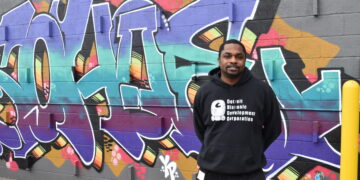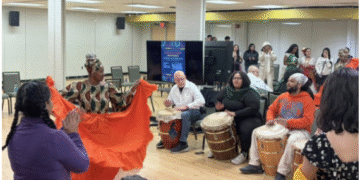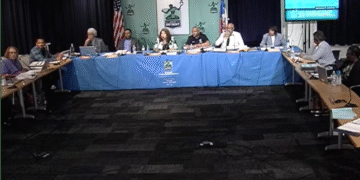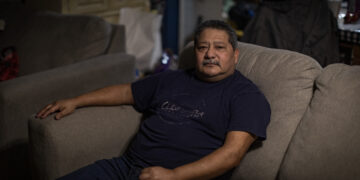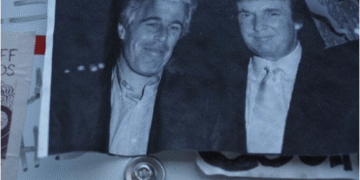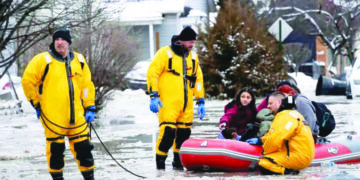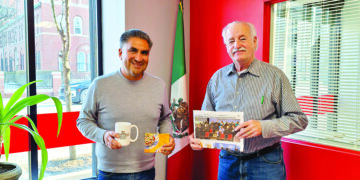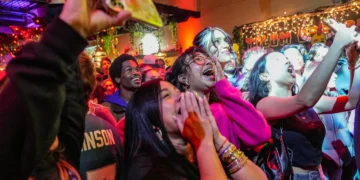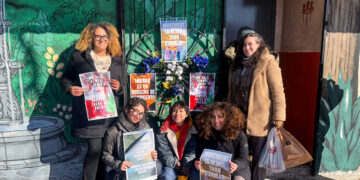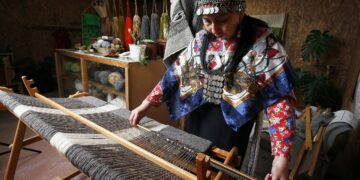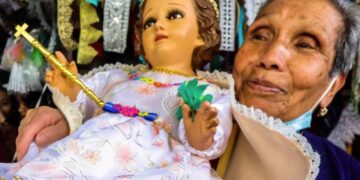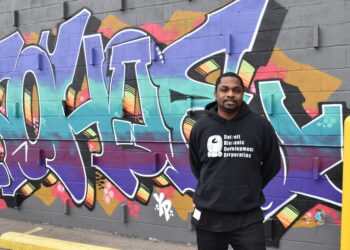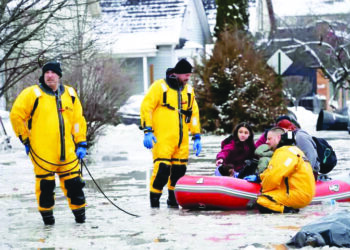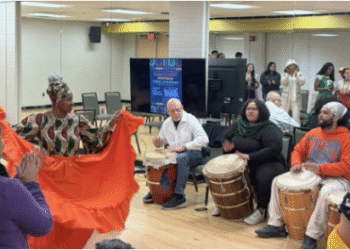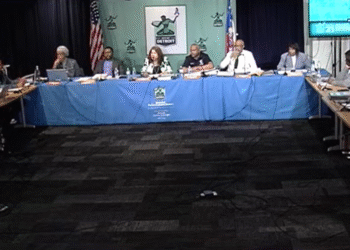It’s Lowrider season, and in Detroit, it kicks off with the annual Blessing of The Lowriders, a community event that began in 1998 to bring together lowrider car and bike clubs and to have their cars blessed.
Those unfamiliar with lowrider culture might mistakenly believe that it’s connected to gangs, but in fact, lowriders are about art, religion, and especially, familia.
Victor Villalobos, founder of the Blessing of The Lowriders, created this event twenty-six years ago with the goal of breaking stereotypes.
“It’s important to show that you should never judge a person by their look or the tattoos. Instead, be open to their passion and drive,” Villalobos said.
At the Blessing of the Lowriders, you will find Abel Perez, founder and president of the Detroit chapter of GoodTimes, a Detroit Lowrider car club. Perez, who always sports cholo fashion, says lowriders have been a family tradition his entire life. He and his wife, Maria, were born and raised in LA, where everyone they knew was into lowriders.
“The lowrider is in every crew in LA, so you grow up seeing it, watching it on every corner every weekend, stopping the traffic, doing their thing. I used to love that,” Perez said.
Lowriders are the pinnacle of LA Chicano culture, dating back to the 1940s. It started after World War II when Latinos were able to afford luxury cars and began to modify them as a form of self-expression and identity.
Perez, his wife, Maria, and their infant daughter, Kathy, moved to Southwest Detroit in 1999 to be with family. Unsure if people in Detroit were into lowriders like back home in LA, he decided to cruise around the neighborhood in his Monte Carlo on a Friday night and find out.
“When I was driving back, I seen a few cars hanging out in the Burger King on Livernois,” Perez said.

However, while hanging out at Burger King, he reunited with an old friend from LA, and they decided to start their own car club chapter together.
A car club, like another type of club, is a group of like-minded people with passion and dedication for their car, but most importantly, it is about the culture.
“People interested in joining a car club must be willing to show off their commitment and enthusiasm when it comes to their car and the community,” Perez said.
As president of the GoodTimes Detroit Chapter, Perez enforces rules from the club headquarters, such as what type of cars are accepted, what type of modifications on a car are needed, and how much of an active participant a person must be.
Rules are set as a way to create fairness and respect throughout the group. Everyone’s car at the base level must be of the same quality, and everyone must equally contribute when it comes to planning events that take place throughout the summer.
There are several lowrider car clubs in Detroit. For twenty years, Sergio Vallejo has been an active member of the Majestics, a worldwide car club that started in Santa Fe Springs, California, in 1973. Vallejo explained that as a member, you are usually put on probation when you first ask to join a club. It’s a way to see if someone is genuinely passionate about their car and being part of the group.
“They give you like six months to be around before they give you a shirt or a plaque to put on your car,” Vallejo said.

When a member receives their shirt and plaque, it is a form of approval for the club and a way to indicate what crew you are riding with at the shows.
Once car clubs receive their blessing at the Blessing of the Lowriders event, they start their meetings to discuss what shows they will be attending and hosting. The shows are a time to show off what new modifications people have made to their cars and get together with family.
Abel Perez and his wife Maria are proud to keep the culture going and have passed the lifestyle on to their daughter.
Kathy Perez is Abel and Maria’s oldest daughter. She’s on the board of Blessing of the Lowriders and has practically been raised in a lowrider. During Kathy’s senior year of undergrad at Saginaw Valley State University, she was the student program coordinator for the Office of Multicultural Engagement, To celebrate Hispanic Heritage Month, she pitched the idea of having a lowrider car show.
Dr. Roberto Garcia, the director of the Office of Multicultural Engagement, was completely for it. He also came from a lowrider background. However, when the idea was brought to the Dean of Students, he had concerns about the crowd it would bring to the school.
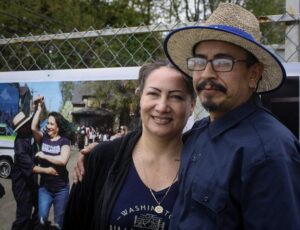
Familiar with the misinterpretation of Lowrider culture, Kathy and Dr. Garcia planned for the event anyway. She asked her dad and his friends to come out. They were joined by the small lowrider community in Saginaw, which had Debbie Sanchez, a lady lowrider, as a guest speaker to talk about her experience as a woman in the scene.
The event became a much larger community event that extended to the students’ families, alumni, and the general public.
“The Dean of Students actually went to it for a little bit. I think afterward, he was just kind of like, okay, that wasn’t bad.” Kathy said.
For many who joined the event, it was their first time ever seeing a lowrider and experiencing that culture. A culture that prides itself on respect, passion, and family and is passed on from generation to generation.
“People don’t understand it’s not a gang. It’s not just a club. It’s just a culture for us. It’s not just like something that we want to meet up, and that’s it. It’s family time, too,” said Maria Perez.
Andrea Meza works for United Community Housing Coalition and graduated from Wayne State University in broadcast journalism. Her main passion is informing and supporting the community.
******
This story was made possible by the Race and Justice Reporting Initiative. The goal of the initiative is to build trust between the news media and Black, Indigenous, and People of Color communities and strengthen representative democracy.


